Photographs: Danish Siddiqui/Reuters Business Standard
The fifth central pay commission’s 10-year period ended in 2005 and the UPA government then showed no such hurry to set up the sixth central pay commission.
Prime Minister Manmohan Singh has approved the constitution of the seventh central pay commission, which will review the compensation packages for about five million central government employees and three million pensioners.
The announcement was made on Wednesday by Finance Minister P Chidambaram in a statement that pointed out that the average time taken by a pay commission to submit its recommendations has been two years.
Hence, the recommendations of the seventh central pay commission are likely to be implemented with effect from January 2016.
. . .
Why the new pay panel spells doom for India's finances
Image: An employee works at the production line of a carpet manufacturing factory in Jammu.Photographs: Mukesh Gupta/Reuters Business Standard
These official clarifications are ostensibly aimed at justifying the logic of the announcement now.
But coming as it does a few months before next year’s general elections and Assembly polls in five states to be held in November-December, it is difficult not to see the announcement as an outcome of the ruling United Progressive Alliance’s electoral considerations of pleasing a large vote bank consisting of government employees and pensioners.
Central pay commissions in the past have usually been set up after every 10 years and the 10-year period of the current sixth central pay commission would be over by 2015.
. . .
Why the new pay panel spells doom for India's finances
Image: A woman buys tomatoes at a wholesale vegetable market.Photographs: Amit Dave/Reuters Business Standard
The promptness that the United Progressive Alliance leadership has shown in setting up the seventh central pay commission is unusual for a government that has dragged its feet on many more urgent economic policy matters of far greater significance.
The fifth central pay commission’s 10-year period ended in 2005 and the UPA government then showed no such hurry to set up the sixth central pay commission. Indeed, it was set up only in July 2006, and its recommendations were received two years later and given retrospective effect from January 2006.
This, no doubt, strained not only the finances of the Union government, but also those of the states, which invariably implemented similar pay increases for their employees as well.
. . .
Why the new pay panel spells doom for India's finances
Image: An employee shows a gold bangle to a customer inside a jewellery showroom in Mumbai.Photographs: Danish Siddiqui/Reuters Business Standard
Indeed, pleasing an eight-million strong vote bank appears to have taken precedence over the government’s commitment towards fiscal consolidation.
The recommendations of the sixth central pay commission had derailed the fiscal consolidation programme from 2008 onwards, when its recommendations got implemented.
Consequently, the expenditure of both the central and state governments increased, over a period of three-four years, by an amount equivalent to almost one per cent of the country’s gross domestic product, or GDP.
The government’s fiscal deficit had made healthy progress in years prior to that -- at four per cent of GDP in 2005-06, 3.3 per cent in 2006-07 and further down to 2.5 per cent in 2007-08.
. . .
Why the new pay panel spells doom for India's finances
Image: Two men look out from the glass door of a currency exchange shop in New Delhi.Photographs: Mansi Thapliyal/Reuters
But the fiscal deficit shot up to six per cent in 2008-09 and one of the reasons was the implementation of the sixth central pay commission’s recommendations of higher pay along with arrears from that year.
So, the announcement that the seventh central pay commission’s recommendations could take effect from 2016 also signals a premature abandonment of the government’s fiscal consolidation programme from that year.
The politically expedient move to announce the constitution of a new pay commission also skirts the larger issue of the need to follow compensation policies that are market-driven and merit-based.
. . .
Why the new pay panel spells doom for India's finances
Image: An image of Lakshmi, the Hindu goddess of wealth and prosperity, is placed between monitors displaying share price index at a share trading market in Chandigarh.Photographs: Ajay Verma/Reuters
A large chunk of government employees at the middle and lower rung continues to enjoy salaries and allowances that are much more than what their counterparts in the private sector get.
There are also questions about the total strength of government employees.
Pay commissions in the past have recommended a linkage between pay revision and reduction in the total number of employees.
It is to be fervently hoped that the terms of reference of the seventh central pay commission would address these concerns and its recommendations on such issues would be implemented without being set aside, as has been done in the past.

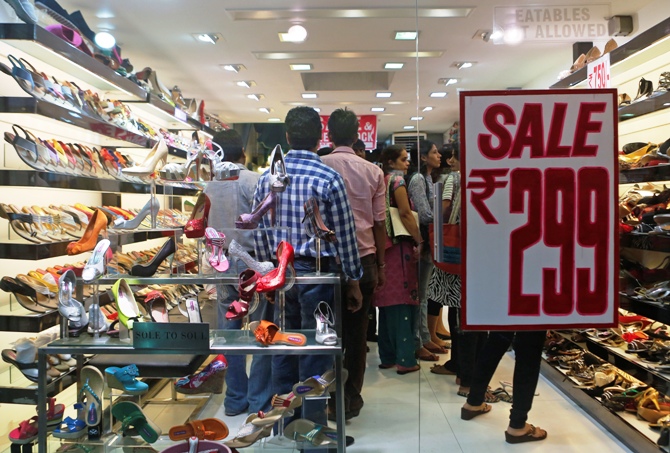
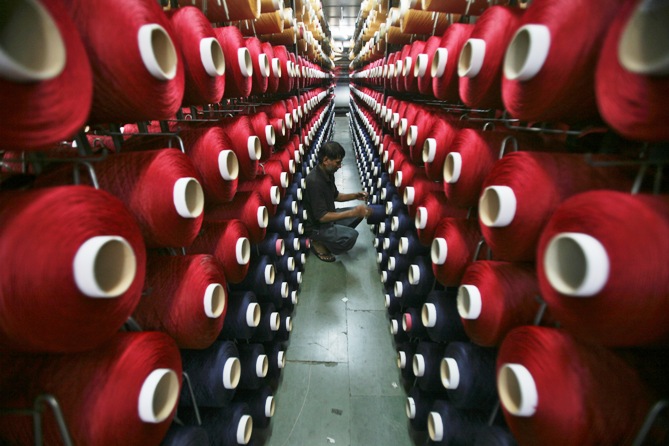

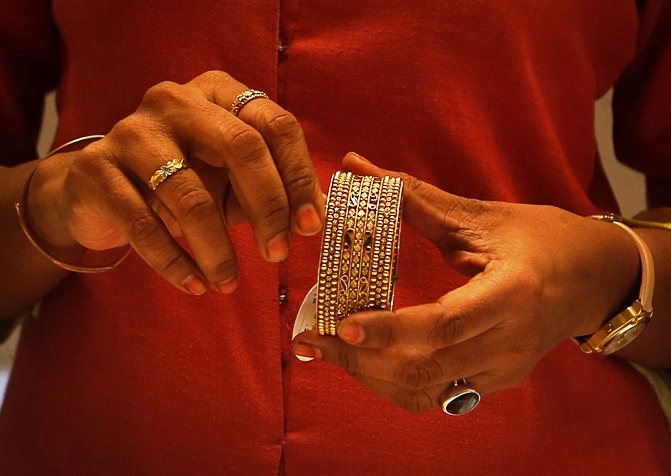
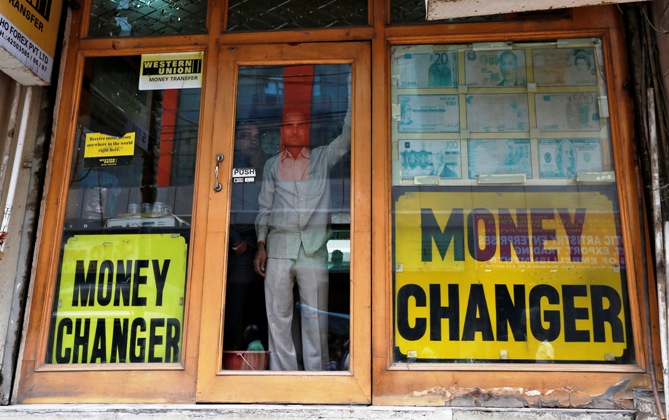
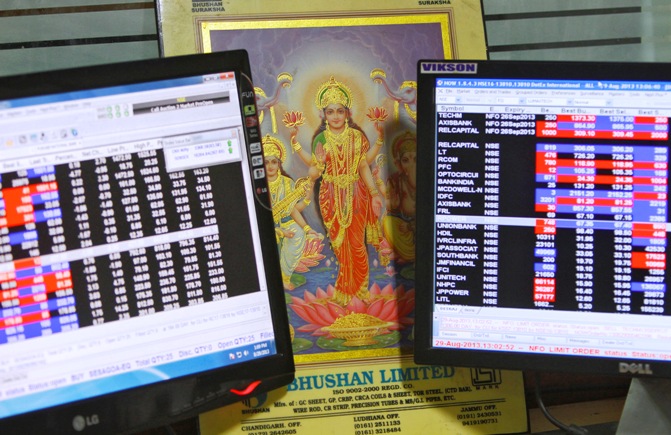

article